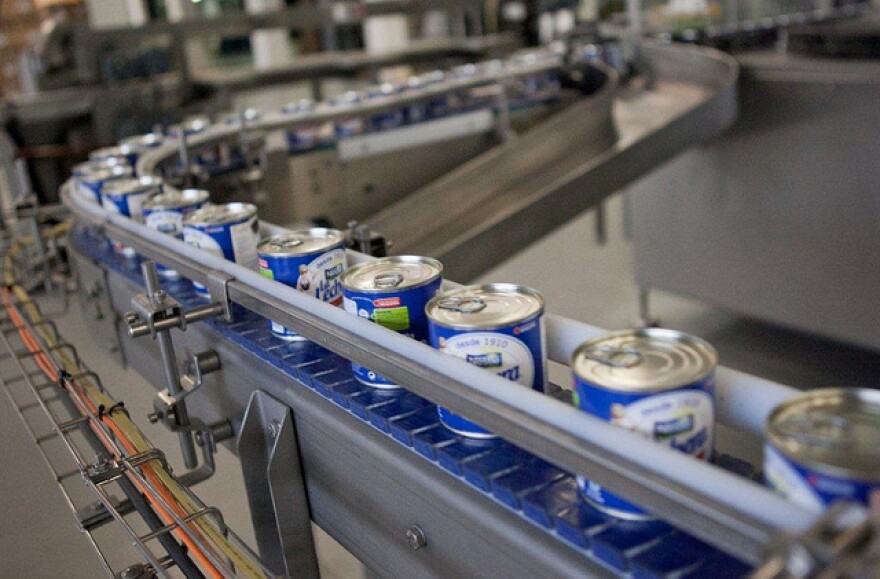The word “product” is shifting.
One of my brothers overheard the following at a big-box retailer the other day: “We have various safety devices to keep product from falling on people.”
This use of product as mass noun stands in distinction to the term “a product,” a term identifying something as, well, produced.
A product came from someplace and is the result of something: a manufacturing process, for example, or a design. A product is from a craftsperson’s efforts, a biological system, or even a chemical reaction. A product can be traced back to its source, a source in the real world.
The process-focus that creates a product carries over into terms like “a production,” with all its connotations of showmanship and even of fun. A production not only reveals its processes, it revels in them.
By contrast, product comes from nowhere, and no one is responsible for it. It exists merely to be shuffled from one place to another, to be considered only collectively and not on its own terms.
Product is anonymous; a product is particular. Production is endless. A production is a special occasion.
Product, then, decontextualizes both origin and purpose. It is the product of mass marketing by way of mass production. (Notice that mass production is also not a production: it’s all go and no show—all business and no fun.) The point of product is to forget the suffering and the sweat that brought it into being. The point of a product is the thing itself, its origins included.
Product is about the bottom line: you move product, but you create a product. A product is an end; product is a means to an end.
In this way, the mass producers and the mass marketers hint at their true values: it’s not about what they sell, it’s about the profitable effects of having sold us on what they sell.




